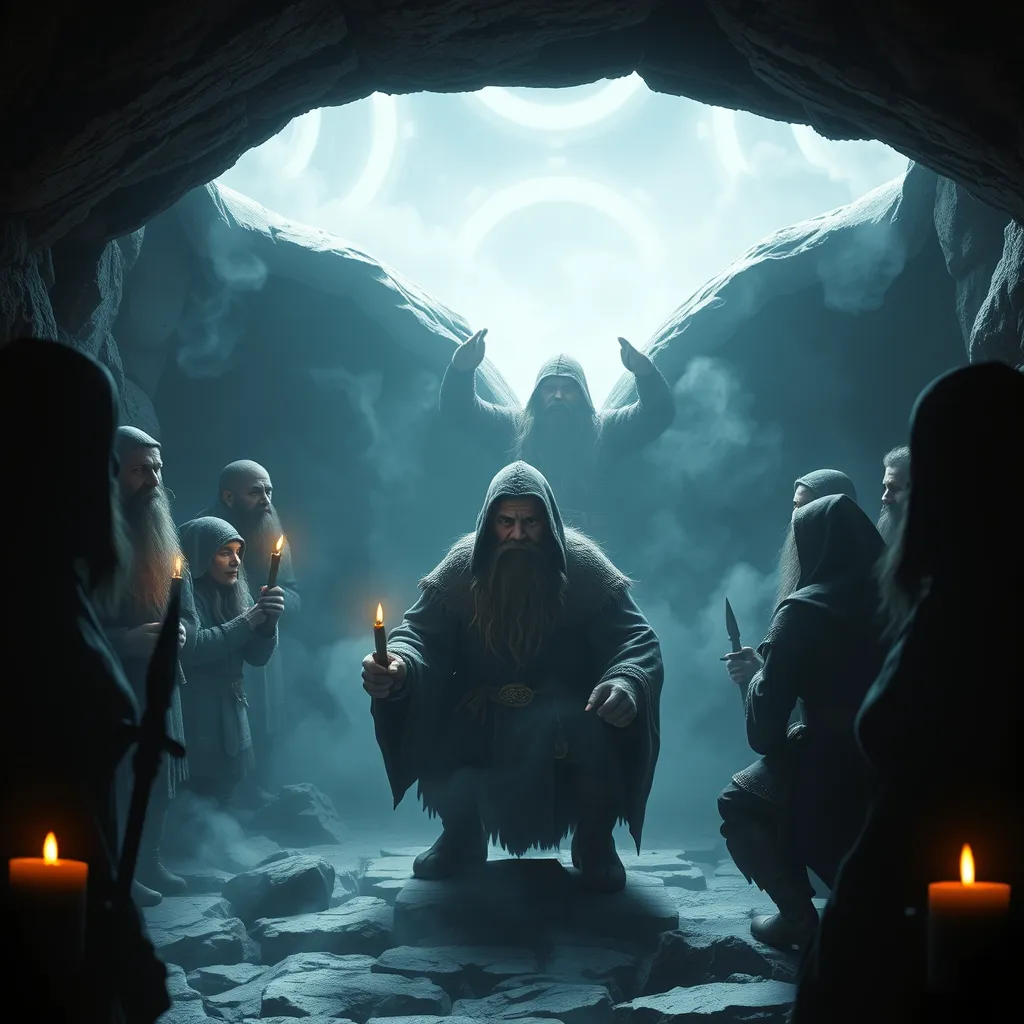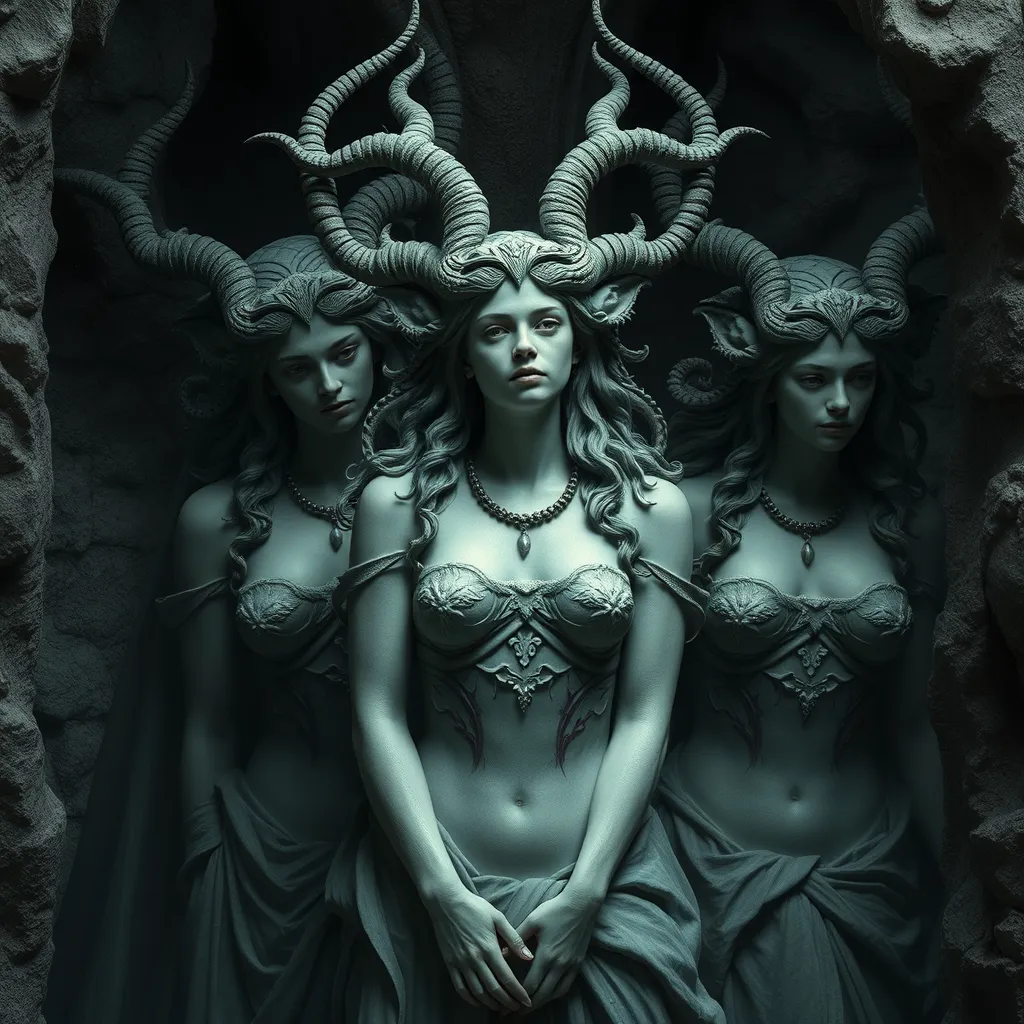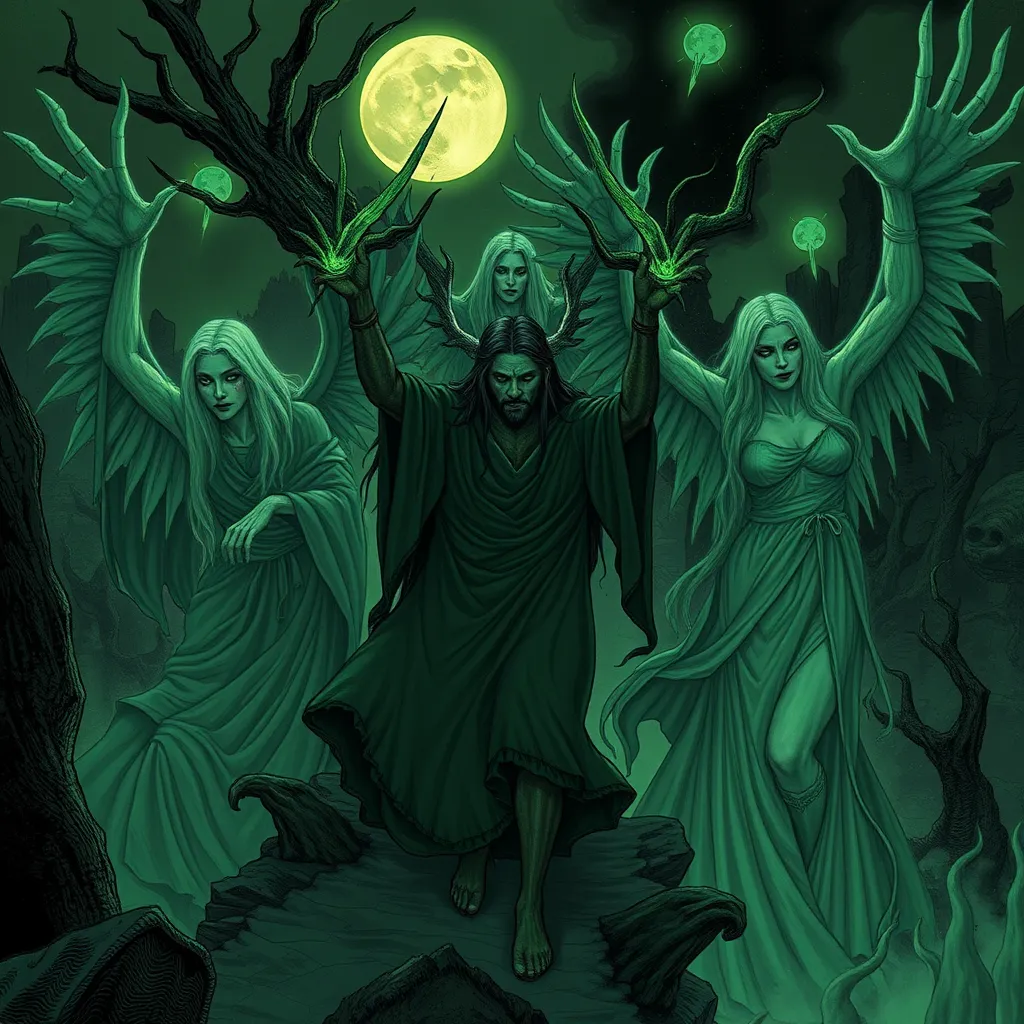The Dwarven Rituals: Examining the Religious Practices and Beliefs of Dwarf Societies
I. Introduction
Dwarven societies are a staple of mythology and fantasy literature, often depicted as sturdy, industrious beings with a deep connection to the earth. They are characterized by their exceptional craftsmanship, robust communities, and rich traditions. Central to these societies are their rituals, which play a pivotal role in their cultural identity and social cohesion.
The purpose of this article is to explore the religious practices and beliefs of Dwarven societies. By examining their historical context, core beliefs, rituals, and interactions with other cultures, we aim to gain a deeper understanding of what it means to be a Dwarf in mythology and fantasy realms.
II. Historical Context of Dwarven Religion
The origins of Dwarven beliefs can often be traced back to ancient legends and mythologies, where they emerged from the depths of the mountains after being molded by the earth itself. These early beliefs were heavily influenced by their environment, leading to a spirituality deeply rooted in nature and the physical world.
Geography played a crucial role in shaping Dwarven religious practices. Living in mountainous regions and underground complexes, Dwarves saw the mountains as sacred spaces, viewing their peaks and caverns as the homes of their gods.
Over the ages, Dwarven spirituality has evolved, incorporating elements from their interactions with neighboring cultures. Despite these changes, the core of their beliefs, centered around craftsmanship and community, has remained steadfast.
III. Core Beliefs and Deities
The Dwarven pantheon is rich and varied, including deities that represent different aspects of their lives. Key figures often include:
- Moradin: The chief god of creation and craftsmanship.
- Clangeddin Silverbeard: The god of war and valor, revered by warriors.
- Deep Sashelas: The god of the sea and the hunt, significant for Dwarves living near water.
Key beliefs that shape Dwarven identity include:
- Craftsmanship: The belief that creation is a sacred act.
- Honor: A strong code of ethics governs their behavior.
- Community: The importance of kinship and loyalty among clans.
Ancestor worship is also prominent in Dwarven spirituality, with a belief that the spirits of their forebears guide and protect them. Honoring ancestors through rituals strengthens community bonds and ensures the continuation of their traditions.
IV. Rituals and Ceremonies
Dwarven culture is rich with rituals and ceremonies marking significant life events. Major rituals include:
- Birth: Celebrations that welcome new life into the clan.
- Coming of Age: A rite of passage that signifies the transition into adulthood.
- Marriage: Ceremonies that bind families together and reinforce alliances.
- Death: Rituals that honor the deceased and celebrate their life.
In addition to these major events, daily practices such as offerings to the gods and expressions of gratitude are common. These rituals can vary from individual practices to communal gatherings, highlighting the significance of both personal spirituality and shared beliefs.
V. Sacred Spaces and Symbols
Dwarves revere numerous sacred sites, often found in their mountainous homes or deep underground. These sites include:
- Mountain Shrines: Places of worship that honor their gods and ancestors.
- Underground Temples: Grand halls dedicated to communal worship and ceremonies.
Symbols and artifacts play an essential role in Dwarven religion, with items such as:
- Runestones: Carved stones that tell stories of their gods and ancestors.
- Crafted Items: Tools and weapons that symbolize their craftsmanship and dedication to their deities.
Music and art are also integral to Dwarven worship, often used in rituals to connect with their gods and express their cultural identity.
VI. Dwarven Festivals and Celebrations
Dwarven festivals are vibrant and communal, celebrating their culture and beliefs. Major festivals include:
- The Festival of Stone: A celebration of their connection to the earth and stone craftsmanship.
- Harvest Celebrations: A time to give thanks for the bounty of the earth and the fruits of their labor.
These festivals are not only a time for celebration but also serve to reinforce Dwarven identity and community bonds. They provide an opportunity for storytelling, sharing of traditions, and reaffirming their shared beliefs.
VII. Interactions with Other Cultures
Dwarven societies often interact with other races, such as Elves and Humans, leading to a rich exchange of religious ideas and practices. These interactions can create both harmony and tension:
- Religious Exchanges: Sharing of beliefs and practices can lead to mutual respect and understanding.
- Tensions: Conflicts may arise due to differing beliefs, especially regarding the sanctity of the earth and craftsmanship.
Despite occasional conflicts, Dwarves have also adapted elements from other cultures, enriching their own spiritual practices. This adaptability has allowed them to maintain their essence while embracing new ideas.
VIII. Conclusion
In summary, Dwarven rituals and beliefs are a fascinating aspect of their culture, deeply rooted in history and shaped by their environment. The significance of craftsmanship, honor, and community resonates through their religious practices, ceremonies, and festivals.
Understanding Dwarven spirituality not only enriches our appreciation of these mythical beings but also highlights their relevance in contemporary fantasy narratives. The exploration of Dwarven rituals offers insights into broader cultural contexts, emphasizing the importance of tradition, identity, and community across societies.



